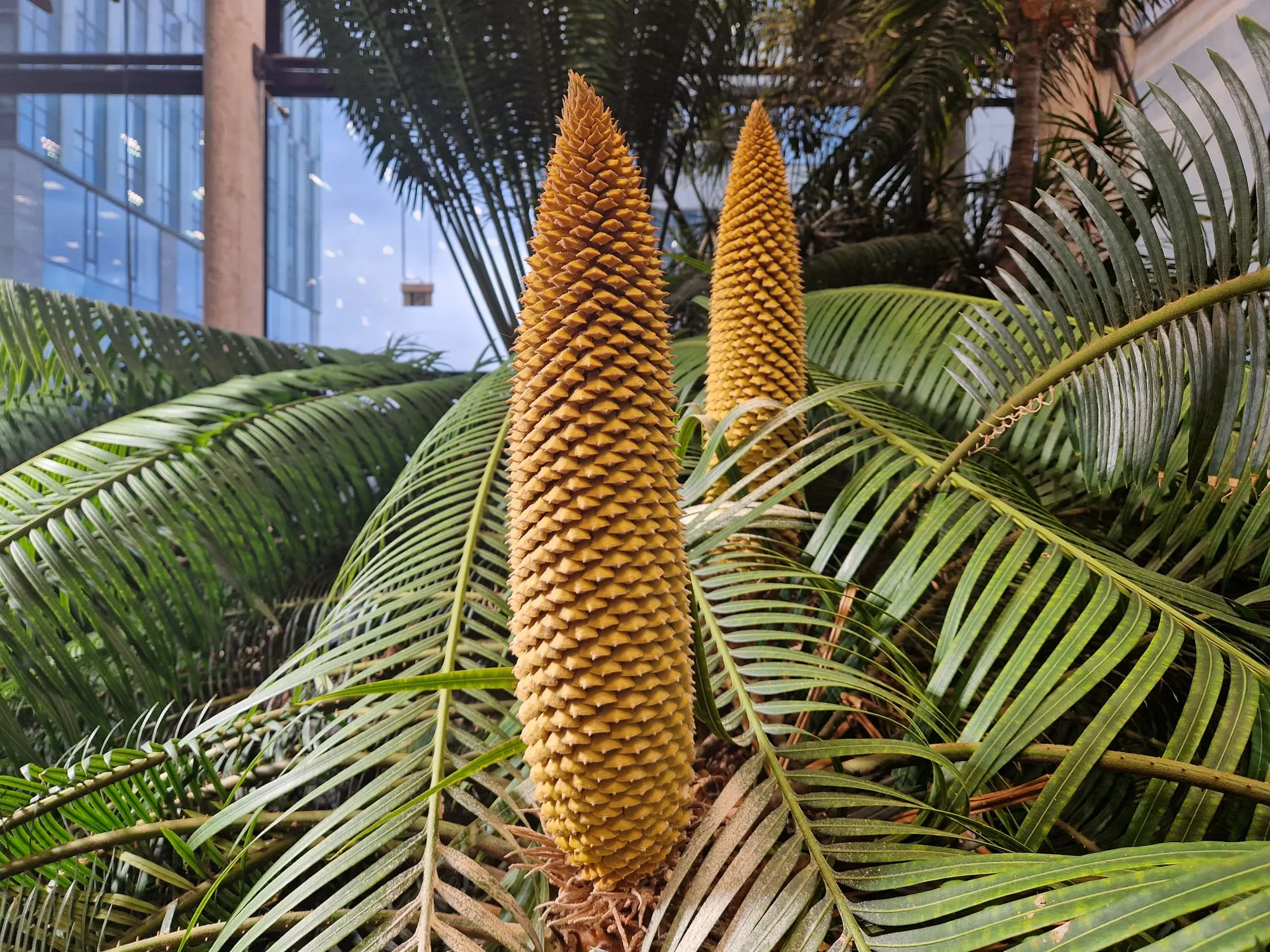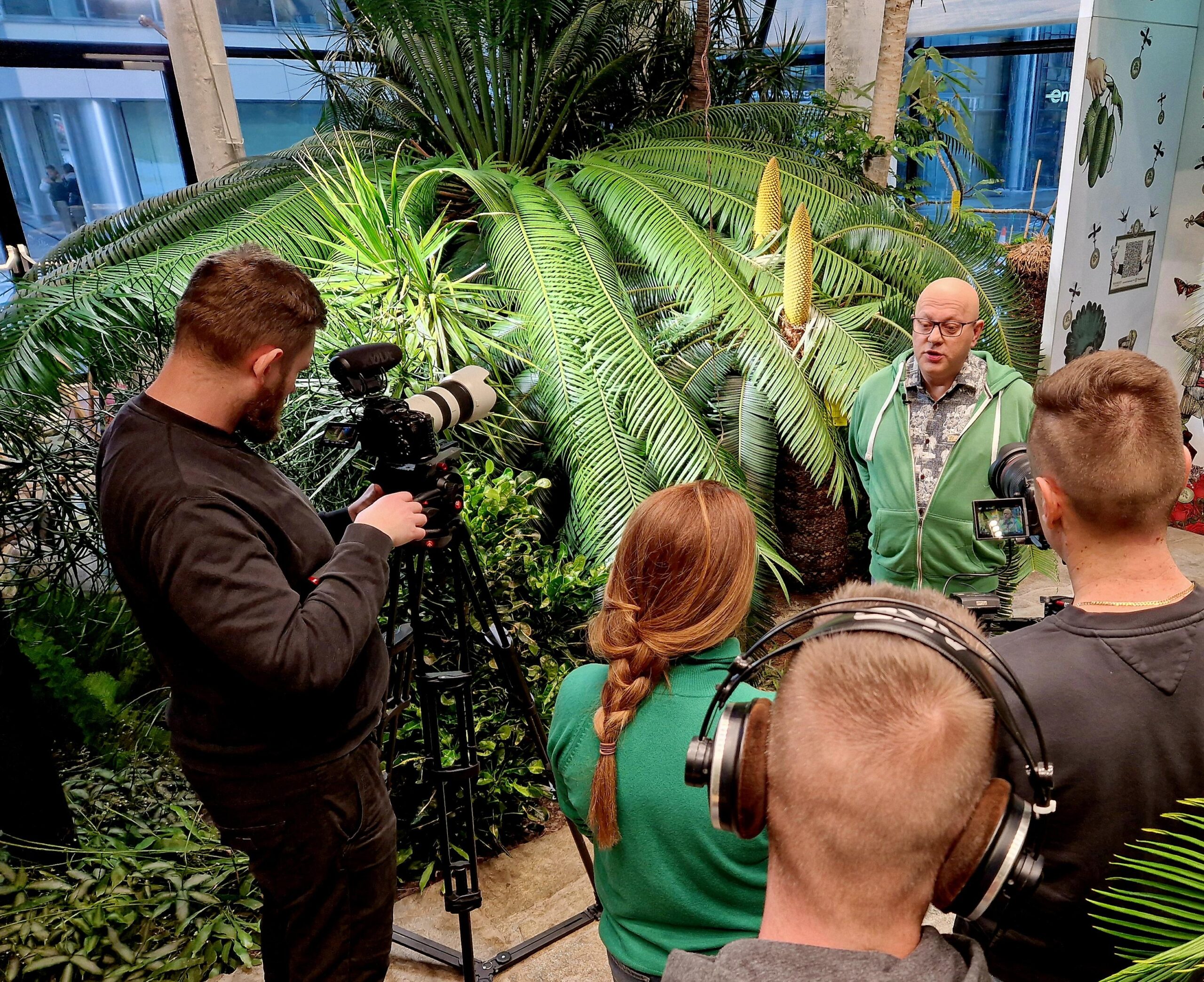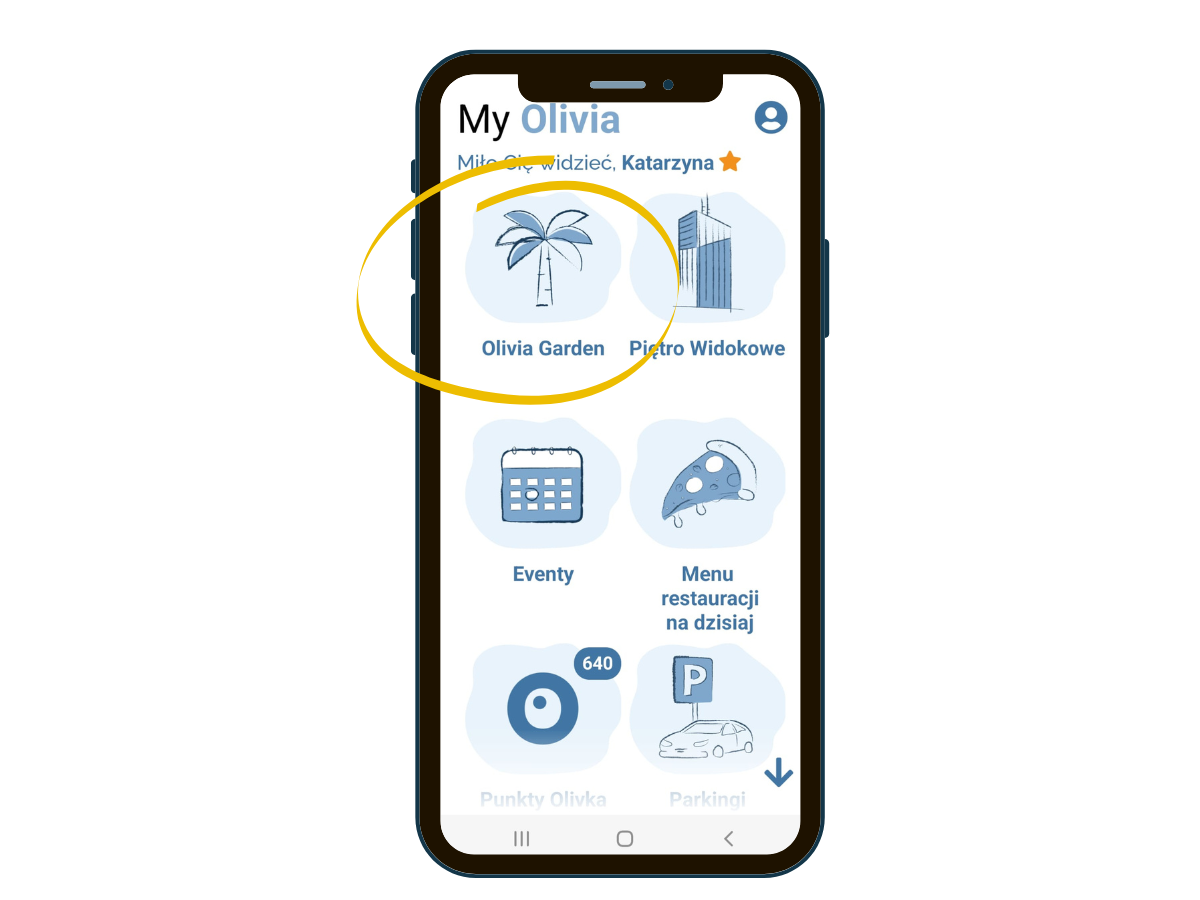Our year-round garden, Olivia Garden, delights and surprises. This time, it was possible to breed a flowering cycad (Cycas circinalis of the species Macrozamia mooroi). It naturally occurred in this latitude 60 million years ago. Today, its bloom in natural conditions is considered impossible.
The cycad is one of the oldest living plant species on Earth – says Tomasz Zabłocki, an expert from Platan, a gardener, and an inspector of tropical plant supervision. Its fossils date back more than 200 million years. It is often called a “living fossil” because of its long evolutionary history. The last flower that bloomed in Poland 10 years ago took 150 years. Their long-term growth makes cycads a symbol of longevity, endurance and strength in many cultures around the world, which is why they are often planted near temples and houses as an amulet bringing good luck to the place.
It is a great joy for us and a proof that we have managed to create a real, living botanical garden, where plants from 5 continents thrive – says Bogusław Wieczorek, Plenipotentiary of the Management Board of Olivia Centre. Two years of the garden’s existence might not seem like a long time, but the growth of the plants is already impressive. We are most pleased that the plants have perfectly acclimatized, coexist and grow wonderfully, which evokes a number of positive emotions and makes the greatest impression on our guests, especially during the winter and autumn months.
Cycads are plants that dominated the Mesozoic period, i.e. at a time when dinosaurs lived on Earth. Cycads are known for their slow growth rate and longevity. The world’s oldest known specimen of cicada, dating back to 6,000 years, belongs to the species encephalartos woodii and grows in the botanical garden in Pretoria, South Africa. Their height usually reaches up to 2.5 meters. The trunk of the Oliwa specimen has already grown to nearly two meters, but its leaves already reach nearly 4 meters, which confirms that it has been possible to create really optimal conditions for the development of plants.
An interesting fact may also be that cycads are dioecious plants, so they have separate male and female plants. Males produce conical structures called struules, and female plants produce seed cones. Insects are necessary for their reproduction, without which this process cannot take place in natural conditions.
These plants hide many secrets: they are said to belong to poisonous species, since chemicals such as toxic cardenol glycosides are found in different parts of the cycad, however, these compounds are used in traditional medicine as effective laxatives, antibacterial and antivirals. What’s more, these plants have developed their own protective mechanisms against insects and other pests. Their leaves contain azadirachtin, which has an insect repellent effect.
Their seeds belong to the group of extremely hardy ones. It has been proven that they can survive fires, extreme temperatures, long periods of drought or prolonged immersion in water. Thanks to this, they can also travel long distances and develop in new areas.
The species of Cycasa that bloomed in Olivia Garden is Macrozamia mooroi and is endemic to Australia, originally growing in a limited area of northern Queensland. Its trunk can reach a height of up to 2 meters, although it is usually much lower. It is typically found in forests and wooded areas with well-drained soils. It plays an important ecological role as a food source and habitat for a variety of animals, including insects and birds. The bright red seeds produced by this cicada are often eaten and spread by the local fauna.
5. Conservation status: Macrozamia mooroi is listed as an endangered species in its natural habitat. Efforts are being made to protect and conserve this species, including conservation programs, habitat restoration, and educational campaigns.
Olivia Garden is an exotic garden opened in 2021 that is located in the heart of Olivia Centre in Gdańsk, the largest business center in Poland. The space of 7500 m3 is filled with nearly 4 thousand sqm. plants from 5 continents, and the height of the tallest of them reaches up to 11 meters. It is the largest exotic garden in Northern Poland, where, in addition to vegetation, there is an amphitheatre, dishes from all over the world are available, as well as workplaces in the spirit of deep work, as well as places for meetings and integration. It is a fully professionally prepared space, which is filled with adaptive lighting, allowing plants to develop even in the absence of access to daylight, a professional irrigation system and sprinklers. During the day, the humidity in the garden provides a comfortable living environment, but at night this space turns into a real exotic jungle, where humidity and temperatures are close to those in the equatorial zone.
Welcome to Olivia Garden!
Remember that if you are an Olivia Resident and have the My Olivia app, you have a free ticket to the garden.
You can visit it whenever you want!







